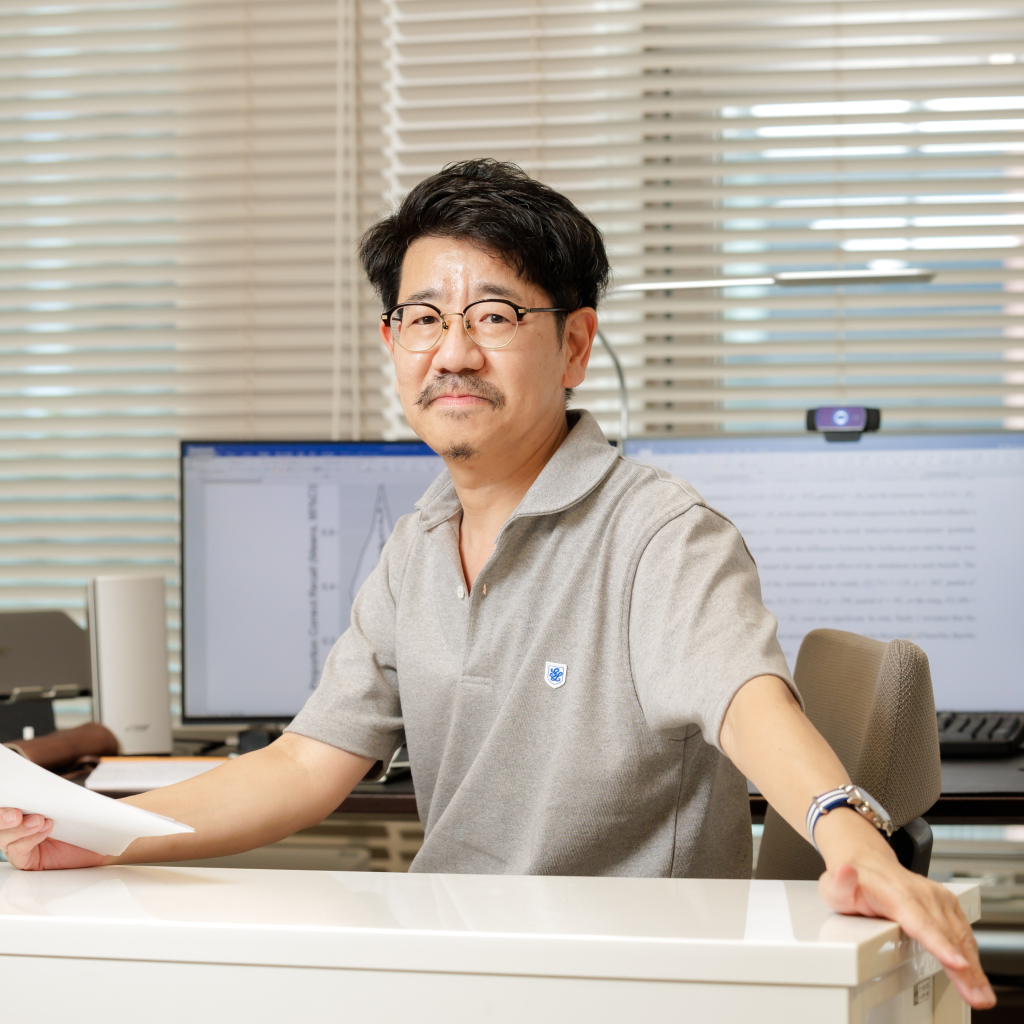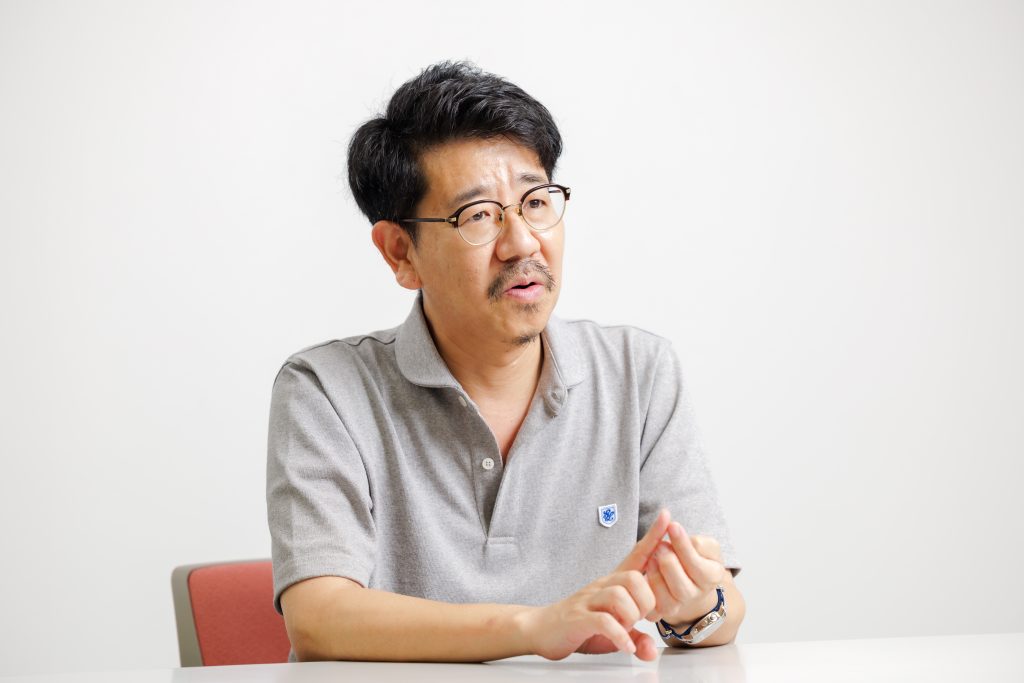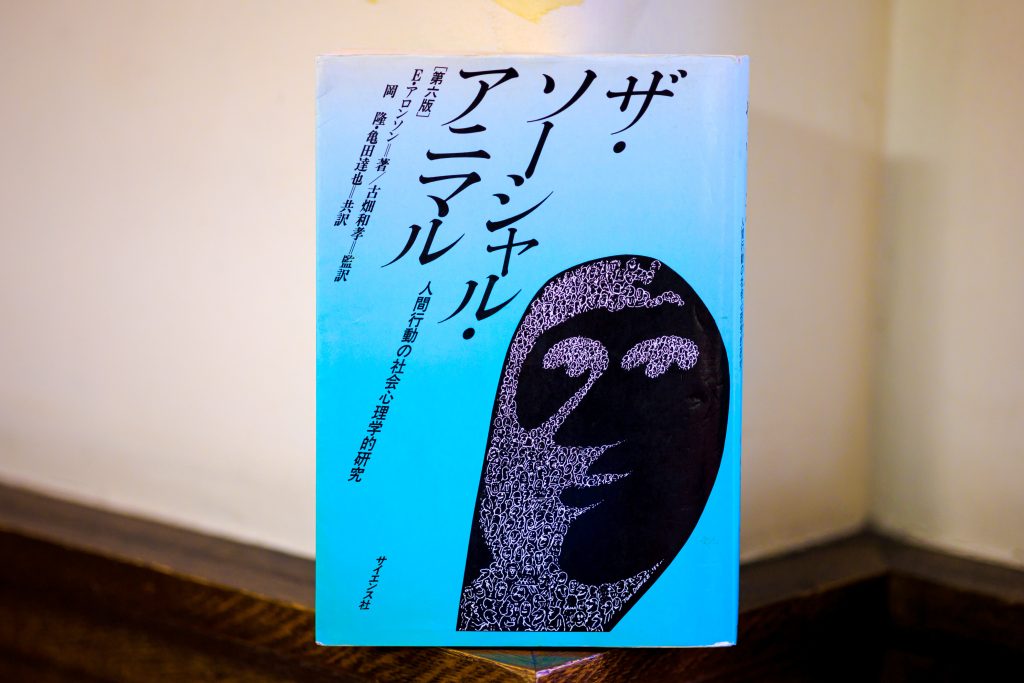
Professor Masataka Higuchi from the Faculty of Human Sciences specializes in social psychology. He researches human behaviors related to health from the aspect of the social environment. Since 2020, he has been focusing on preventive behaviors against COVID-19, continuously examining the impetuses behind changes in people’s behaviors and such through the use of surveys.
In the spring of 2020, the attention of people around the world was drawn to the spread of an unknown virus: COVID-19. In Japan, a state of emergency was declared in April, and there were restrictions on going out, contact with people, and other behaviors. I had been studying the health behaviors of humans from the perspective of social environment, but I had never faced a situation like this in which people’s behaviors were restricted all at once. I felt that this was truly a grand experiment on a global scale, and immediately embarked on a survey research.
Starting from the first wave of infections in April, I conducted an online panel survey targeting approximately 1,000 men and women between the ages of 20 and 69 living in Tokyo. Subsequently, surveys were also conducted for each wave from the second wave onward, and each time, I asked the same set of people. The questions were mainly about preventive behaviors during the time when a state of emergency was declared, such as self-restraint on going out to prevent the spread of infections, behaviors to avoid human contact, frequency of actions such as hand washing, and people’s level of risk perception regarding viruses.
People are surprisingly moved by the power of the situation

The surveys showed that people’s preventive behaviors change significantly due to social institutional frameworks such as the declaration of a state of emergency. Furthermore, we live in an era where the behaviors of other people are known immediately, such as through online information. News such as “Tokyo has more than 100 new cases of infection” and “a famous person has passed away after being infected” also influenced preventive behaviors. Such external factors are linked to people’s mindsets of what should and should not be done, and as a result, might have led to the taking of preventive behaviors.
At the same time, I also found that the passage of time has a very strong impact. Habituation sets in with time, diluting the sense of risk regarding the virus. As the perception of risk decreased, the frequency of hand washing and other actions dropped as they became troublesome, and people also became less mindful about self-restraint on going out.
In other words, humans are more affected by the power of the situation than we think. Humans do not decide their own behaviors—this is a major discovery in social psychology. We tend to think that a person’s behaviors are due to his or her character, but it could well be that the person is simply acting according to the power of the social situation. I think a major advantage of learning social psychology is being able to put aside assumptions and look at humans from a broad perspective.
Focusing on social factors that bring about behavioral changes
My research stance is to focus on social factors rather than personal factors. For example, using condoms to prevent sexually transmitted diseases and undergoing cervical cancer screening are important health behaviors, but there is a lack of thoroughness probably due to a sense of shame. How can we go beyond this sense of shame to cause a change in behavior? I search for social factors that bring about behavioral changes and undertake research with the greatest interest in the changing behaviors of humans.
As long as the pandemic persists, I intend to continue with the surveys on preventive behaviors regarding COVID-19. By accumulating data, we leave a record of the causal relationship for the changes in people’s behavior as a result of a particular policy. Analyzing this data within various frameworks may help us discover the mechanism behind changes in human behaviors under a state of emergency. This data may also be useful in the future when there is a similar wave of infections.
The book I recommend
“The Social Animal”
by Elliot Aronson, translated by Takashi Oka and Tatsuya Kameda, translation supervised by Kazutaka Furuhata, SAIENSU-SHA

This is a famous work packed with the essence of social psychology. Various topics are written about in detail based on experiments. I first read it at a used book store during my university days. It was very interesting and led to my decision to embark on the path of a researcher. I recommend it as an introductory text for learning social psychology.
-
Masataka Higuchi
- Professor
Department of Psychology
Faculty of Human Sciences
- Professor
-
Graduated from the psychology course of the Department of Education, Faculty of Letters, Chuo University, and received his Ph.D in Psychology through the psychology doctoral program at the Graduate School of Education, Hiroshima University. Took on several positions—such as lecturer at the Faculty of Humanities, Matsuyama Shinonome College, and lecturer and associate professor at Hiroshima University’s Graduate School of Education—before becoming an associate professor at Sophia University’s Faculty of Human Sciences in 2013 and assuming his current position in 2017.
- Department of Psychology
Interviewed: July 2022